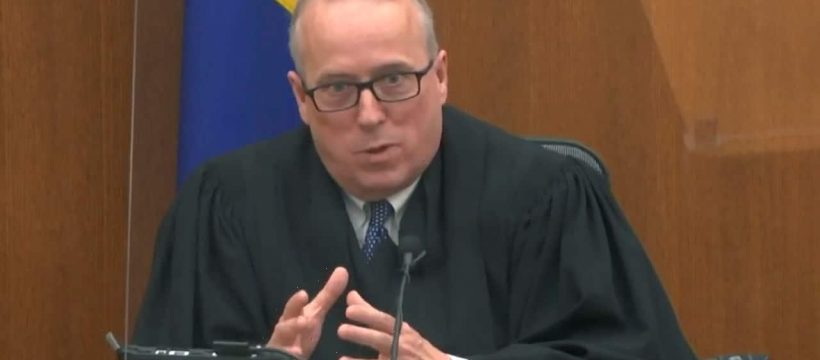Derek Chauvin verdict: Guilty on all charges in death of George Floyd
FOX News Correspondent Matt Finn joins ‘Special Report’ with the latest from Minneapolis
After Derek Chauvin was convicted on three murder charges Tuesday in Minneapolis in the death of George Floyd, Hennepin County, Minnesota, Judge Peter Cahill, who presided over the case, spoke of procedures that would take place prior to Chauvin’s sentencing.
Cahill said Chauvin would be sentenced in eight weeks, with the specific date and time yet to be determined. But prior to that, attorneys for both sides would confer regarding what the judge referred to as “Blakely factors” and “PSI,” or pre-sentence investigation.
Here’s what the two terms mean:
Blakely factors
“Blakely factors” refers to Blakely v. Washington, a U.S. Supreme Court case that was decided in 2004. In part, the case determined that the jury, not the judge, should determine any facts used to impose a sentence that exceeds the established sentencing guidelines for an offense on which a defendant is convicted. The judge would still determine whether the harsher sentence would be imposed.
The 2004 case referred to a Washington state defendant’s assertion of his rights under the Sixth Amendment of the U.S. Constitution, which refers to a defendant’s right to a fair trial.
Prosecutors in Chauvin’s case have already indicated they intend to pursue longer sentences for Chauvin than state guidelines suggest, citing two aggravating factors in the Chauvin case: that the crimes on which Chauvin was convicted occurred in the presence of children and that the crimes represented an abuse of governmental authority, the Minnesota Post reported.
Blakely waiver
On Monday, however, Chauvin agreed to a Blakely waiver, meaning the defendant agreed that Cahill, not the jury, could determine the validity of any alleged aggravating factors that would justify a longer sentence than state sentencing guidelines allow, the Post reported.
PSI
A pre-sentence investigation (PSI) is typically ordered by a judge to help determine if a defendant convicted of a crime would be a good candidate for probation. The results of the investigation can factor into a judge’s determination on the length of the sentence.
Authorities have said Chauvin could spend decades in prison.
Source: Read Full Article


